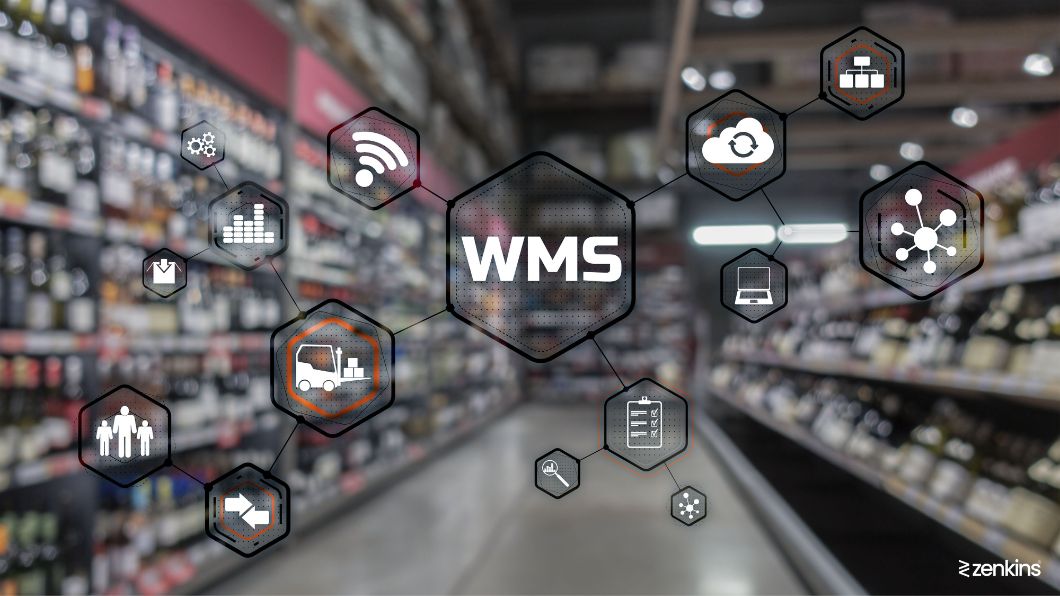Smart Warehousing: How a Custom WMS Can Boost Efficiency and Accuracy
Table of Contents
In today’s rapidly evolving business landscape, the concept of smart warehousing has become increasingly vital for companies looking to stay competitive and efficient. The traditional methods of warehousing have undergone a significant transformation, thanks to the integration of advanced technologies and innovative solutions. This article explores the evolution of warehousing practices, the role of technology in shaping modern warehouses, and how a custom Warehouse Management System (WMS) can revolutionize operations to boost efficiency and accuracy.
Introduction to Smart Warehousing
Warehousing has come a long way from dusty shelves and clipboards. In the age of smart technology, smart warehousing is all about efficiency, accuracy, and staying ahead of the game. Let’s dive into how modern warehouses have evolved and how technology has revolutionized the way we store, manage, and move goods.
Understanding the Evolution of Warehousing
Gone are the days of manual processes and guesswork in warehouses. Today, advanced systems and processes have transformed warehouses into hubs of precision and productivity. The evolution of warehousing showcases a shift towards automation, data-driven decision-making, and streamlined operations to meet the demands of a fast-paced supply chain.
The Impact of Technology on Modern Warehousing Practices
Technology has been a game-changer for modern warehousing, paving the way for increased efficiency, accuracy, and scalability. From barcode scanning to IoT sensors, technology has empowered warehouses to optimize inventory management, enhance order fulfillment, and improve overall operations. Smart warehousing is all about leveraging technology to work smarter, not harder.
Eliminate Production Bottlenecks: A Custom PPS Software for Optimal Resource Allocation
The Role of a Custom Warehouse Management System (WMS)
A Custom Warehouse Management System (WMS) is like the brain of a smart warehouse, orchestrating and optimizing every aspect of operations. Let’s uncover the key functions and benefits of a custom WMS and how choosing the right one can make a world of difference for your business.
Key Functions and Benefits of a Custom WMS
A custom WMS is designed to fit your unique business needs like a glove. From real-time inventory tracking to order processing and labor management, a custom WMS streamlines operations, reduces errors, and boosts productivity. Say goodbye to one-size-fits-all solutions and hello to tailored efficiency.
Choosing the Right Custom WMS for Your Business
Selecting the right custom WMS can be a game-changer for your warehouse operations. Consider factors like scalability, integration capabilities, and user-friendliness when choosing a custom WMS that aligns with your business goals. Investing in the right technology can future-proof your warehouse and set you up for success in the long run.
Enhancing Efficiency Through Automation and Integration
Automation and integration are the dynamic duo of smart warehousing, driving efficiency and seamless operations. Let’s explore the latest automation technologies and integration strategies that can take your warehouse to the next level of productivity.
Automation Technologies in Smart Warehousing
From robotic pickers to automated conveyor systems, automation technologies are revolutionizing warehouse operations. By automating repetitive tasks, warehouses can boost efficiency, reduce errors, and free up human resources for more strategic activities. Embracing automation is the key to staying competitive in the fast-paced world of logistics.
Integration Strategies for Seamless Operations
Integrating different systems and technologies within a warehouse ecosystem is crucial for smooth operations. Whether it’s connecting your WMS with ERP systems or integrating IoT devices for real-time data insights, seamless integration streamlines processes and improves visibility across the supply chain. A well-integrated warehouse operates like a well-oiled machine, with every part working in harmony.
Improving Inventory Accuracy with Customized Solutions
Inventory accuracy is the holy grail of warehouse management, and custom WMS solutions hold the key to unlocking it. Let’s explore the challenges in inventory management and how custom WMS features can revolutionize the way you track and manage your inventory.
Challenges in Inventory Management
Inventory management can be a tricky beast, with issues like stockouts, overstock, and inaccuracies plaguing warehouse operations. Without a solid system in place, managing inventory can quickly become a nightmare. Identifying and tackling these challenges head-on is essential for maintaining a well-organized and efficient warehouse.
Custom WMS Features for Inventory Accuracy
Custom WMS solutions offer a plethora of features specifically designed to enhance inventory accuracy. From cycle counting to RFID tracking, a custom WMS provides real-time visibility into inventory levels, locations, and movements. By leveraging these features, warehouses can minimize errors, prevent stockouts, and optimize inventory turnover. Say goodbye to inventory guesswork and hello to precision with a custom WMS.
Streamlining Order Fulfillment Processes
Order Processing Challenges in Warehousing
Picture this: the chaos of orders coming in left, right, and center, like a game of Tetris on expert mode. In the hustle and bustle of the warehouse, errors can easily slip through the cracks faster than you can say “package that pronto!”. From inventory mix-ups to delays in processing, the challenges of order fulfillment are as real as that last-minute rush to meet a deadline.
Optimizing Order Fulfillment with Custom WMS
Enter the hero of our story – the Custom Warehouse Management System (WMS). With the prowess to streamline order processes smoother than a jazz saxophonist on a Friday night, a custom WMS can be the game-changer your warehouse needs. By tailoring the system to fit your unique needs like a bespoke suit, you’ll see efficiency levels soar higher than a rocket on a mission. Say goodbye to order mishaps and hello to a well-oiled fulfillment machine.
Real-Time Data Analytics for Informed Decision-Making
Importance of Data Analytics in Smart Warehousing
Let’s talk numbers – the kind that doesn’t put you to sleep but wakes you up to exciting possibilities. In the world of smart warehousing, data analytics is the secret sauce that transforms heaps of raw data into a recipe for success. By deciphering trends, patterns, and insights faster than you can say “Eureka!”, data analytics paves the way for informed decision-making that’s as sharp as a katana blade.
Utilizing Real-Time Data for Operational Insights
Imagine having a crystal ball that shows you the future of your warehouse operations in real-time. With real-time data at your fingertips, you can steer the ship of your warehouse with precision and foresight. From inventory levels to order statuses, harnessing real-time data empowers you to make strategic decisions that keep your warehouse running smoother than a well-oiled machine.
Case Studies: Success Stories of Custom WMS Implementation
Ah, the tales of triumph that warm the cockles of our warehouse-loving hearts. Dive into the world of custom WMS implementation success stories and witness firsthand the magic that unfolds when efficiency meets innovation. From faster order processing to streamlined inventory management, these case studies are the proof in the pudding that custom WMS is not just a solution but a revolution in the world of warehousing.
Case Study 1: Optimizing Warehouse Operations with Custom WMS
A leading third-party logistics provider operating multiple warehouses across different regions with a diverse client base and a wide range of inventory management needs, faced challenges in efficiently managing warehouse operations, including inventory tracking, order fulfillment, and resource allocation.
The company required a robust Warehouse Management System (WMS) that could streamline its warehouse operations, enhance inventory visibility, and improve order accuracy. Off-the-shelf WMS solutions did not fully meet their specific requirements, as they needed customization to accommodate unique workflows, inventory types, and client demands.
The company partnered with a software development company specializing in custom WMS solutions to develop a tailored warehouse management system. The custom WMS was designed to integrate seamlessly with the company’s logistics’ existing infrastructure and address their unique operational challenges.
Case Study 2: Enhancing Operational Agility with Custom WMS Integration
A leading manufacturer of consumer electronics with multiple production facilities and distribution centers worldwide faced challenges in managing complex supply chain operations and optimizing inventory management across multiple warehouses. The company sought a solution to enhance operational agility and efficiency.
The company needed a Warehouse Management System (WMS) that could centralize inventory management, streamline order fulfillment processes, and enable real-time visibility into warehouse operations. However, off-the-shelf WMS solutions lacked the flexibility and customization required to meet the unique needs of the company’s diverse product lines and global distribution network.
To address their specific requirements, the manufacturing company collaborated with a software development firm specializing in custom WMS solutions to develop a tailored warehouse management system.
Conclusion
In conclusion, smart warehousing powered by a customized Warehouse Management System (WMS) offers a strategic advantage by optimizing processes, improving accuracy, and enhancing overall operational efficiency. Embracing technological advancements and tailored solutions can pave the way for a seamless, data-driven approach to warehouse management, ultimately leading to increased productivity and customer satisfaction. By harnessing the power of smart warehousing, businesses can future-proof their operations and elevate their competitive edge in today’s dynamic market environment.
Frequently Asked Questions (FAQ)
What is a Warehouse Management System (WMS) and why is it important for smart warehousing?
A Warehouse Management System (WMS) is a software solution designed to manage and optimize warehouse operations, including inventory management, order fulfillment, and warehouse tasks such as receiving, picking, packing, and shipping. In the context of smart warehousing, a WMS becomes crucial as it enables real-time tracking of inventory, improves inventory accuracy, enhances operational efficiency, and enables data-driven decision-making. By leveraging automation, barcode scanning, RFID technology, and integration with other systems, a WMS empowers businesses to streamline warehouse processes, minimize errors, and maximize productivity.
How can a custom WMS improve inventory accuracy and streamline order fulfillment processes?
A custom WMS can be tailored to the specific needs and workflows of a business, resulting in improved inventory accuracy and streamlined order fulfillment processes. Customization allows businesses to design workflows that match their unique operations, ensuring optimal inventory tracking, storage, and retrieval. With features such as barcode scanning, RFID integration, and automated replenishment, a custom WMS minimizes manual errors, reduces stockouts and overstock situations, and enhances inventory visibility. Additionally, customized order fulfillment workflows enable efficient order picking, packing, and shipping, leading to faster order processing times and improved customer satisfaction.
What are some key considerations when choosing a custom WMS for a specific business’s warehousing needs?
When selecting a custom WMS for a business’s warehousing needs, several key considerations should be taken into account. These include:
Scalability: The WMS should be scalable to accommodate the business’s current and future growth requirements.
Integration: The WMS should seamlessly integrate with existing systems, such as ERP, inventory management, and transportation management systems, to ensure data accuracy and workflow efficiency.
Customization: The WMS should offer customizable features and workflows that align with the unique requirements of the business’s warehousing operations.
User-Friendly Interface: The WMS should have an intuitive user interface that is easy to navigate and use, facilitating user adoption and minimizing training time.
Support and Maintenance: Consideration should be given to the level of support and maintenance offered by the WMS provider, including software updates, troubleshooting, and ongoing technical support.
Are there any real-world examples or case studies that highlight the benefits of implementing a custom WMS for smart warehousing?
Several real-world examples and case studies demonstrate the benefits of implementing a custom WMS for smart warehousing. For instance, a global e-commerce retailer saw a significant improvement in order accuracy and fulfillment speed after implementing a custom WMS tailored to their complex warehouse operations. Similarly, a third-party logistics provider experienced increased operational efficiency and reduced labor costs following the deployment of a customized WMS solution designed to optimize warehouse workflows and inventory management processes. These case studies illustrate how custom WMS solutions can drive tangible benefits and improve overall warehouse performance in diverse business environments.




